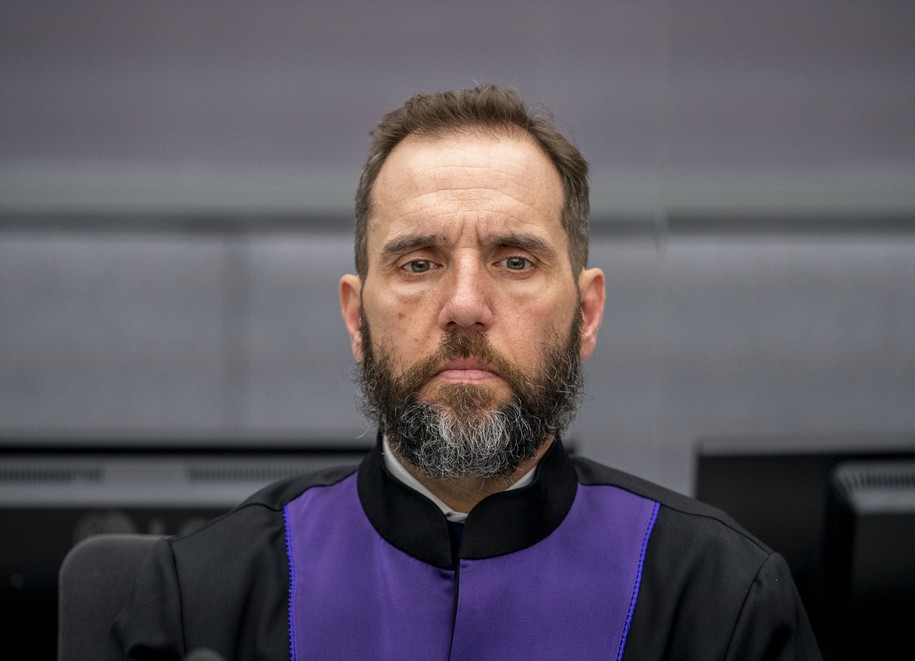
Classification, or ignorance, is no excuse
With Trump, it’s always hard to tell if he’s lying or simply ignorant. In some situations, both definitely apply.
In this case, Trump is lying. Because the letter from National Archivist Debra Steidel Wall makes it clear that the records she is providing to Smith directly address whether Trump knew that his “I declassified them all” defense is a lie.
“The 16 records in question all reflect communications involving close presidential advisers, some of them directed to you personally, concerning whether, why, and how you should declassify certain classified records.”
Trump didn’t take steps to properly declassify documents. His advisers knew he hadn’t taken these steps and warned him personally. Trump ignored them.
He was aware enough that he had done the wrong thing, that he attempted to protect these records from Smith using a claim of “constitutionally based privilege.” Normally that’s the kind of thing that might kick off a round of court cases all on its own, but in this case the archivist had physical and legal control over the documents in question. If she says they’re going to Smith, they are going.
Not only did Trump carry off classified information he knew was still classified, he continued to make the claim that he had declassified these documents not just in public, but in court, well after he knew the claim was false. That’s not something that Smith is likely to overlook.
Trump can’t claim that he declassified all the documents, and he can’t claim ignorance. So what else can he claim?
Presidential Records Act
In his appearance on CNN, Donald Trump did what he has done multiple times when speaking in public; he completely inverted the purpose of the Presidential Records Act.
TRUMP: I had every right to under the Presidential Records Act. You have the Presidential Records Act. I was there and I took what I took and it gets declassified.
According to Trump, the act allows him to take what he wants, then negotiate with the National Archives of what he has to give back to them. It’s a claim that Trump has been making for months, one that may have been capped by a statement that Trump made following his arraignment on April 4 which was reviewed by The Washington Post.
“Just so everyone knows, I come under what’s known as the Presidential Records Act, which was designed and approved by Congress long ago just for this reason. Under the act, I’m supposed to negotiate with NARA, the National Archives and Records Administration. … This is what we have to deal with, but there is no criminality under the Presidential Records Act. That is not what it’s all about. We were negotiating in very good faith, proper way in order to return some or all of the documents that I openly and in very plain sight brought with me to Mar-a-Lago from our beautiful White House just as virtually every other president has done in the past.”
Not only is a significant portion of this statement simply a lie, in a legal sense, every word of it is absolutely wrong.
According to the Presidential Records Act, no retiring executive can automatically claim any document as private property. Everything immediately comes under “complete ownership, possession, and control” of the public through the National Archives. That expressly includes documents to and from the immediate staff meant “to advise or assist the President, in the course of conducting activities which relate to or have an effect upon the carrying out of the constitutional, statutory, or other official or ceremonial duties of the President.”
There is not a lot of gray area in the act. There is a carve-out that allows for the protection of personal medical files, advice that doesn’t have anything to do with the office, and some defense information—but those requests have to go to the archives before leaving office, and even then the documents stay with the archives. They’re just not open to the public scrutiny afforded many documents. There’s also a section of the law concerned with withholding records of “a purely private or nonpublic character,” but again, these are negotiations to be carried out before leaving office, not after.
Trump’s ability to negotiate anything with the archives ended when his term ended. As the law says, “Upon the conclusion of a President’s term of office” all responsibility for, and custody of, presidential documents falls to the Archivist of the United States.
While Trump is right that the Presidential Records Act doesn’t define any new penalties or criminal charges, that doesn’t mean there are none. Those charges can be found in U.S. Code Title 18, section 2071 which deals with government records in general. It was this law under which Oliver North was convicted in 1989 (North’s sentence was vacated when an appeals court determined that he had given testimony under immunity—something that will not be an issue with Trump).
Whoever willfully and unlawfully conceals, removes, mutilates, obliterates, or destroys, or attempts to do so, or, with intent to do so takes and carries away any record, proceeding, map, book, paper, document, or other thing, filed or deposited with any clerk or officer of any court of the United States, or in any public office, or with any judicial or public officer of the United States, shall be fined under this title or imprisoned not more than three years, or both.
This section absolutely applies to the documents defined under the Presidential Records Act.
The criminal penalties
That three year sentence for mishandling or appropriating government documents could potentially be applied per document. North was fined $150,000 for his role in destroying emails related to Iran-Contra, and that was 1989 dollars.
But note that all of this is just for non-classified information. Penalties related to classified information can be severe. That includes multi-year sentences associated with violations of 18 USC § 793(e) with unauthorized possession of sensitive materials, or showing those materials to an unauthorized person. Add multi-year penalties for violating 18 USC § 1924, which deals with unauthorized removal of classified documents from a secure location. Again, these can be applied on a per-document basis.
Finally, there’s the big one: the Espionage Act of 1917, which specifically criminalizes the disclosure of classified information related to national defense. Since we don’t know what was in all the documents Trump carried away, we can’t know if that one would fit, but rumors certainly suggest it’s a possibility.
All of this shows that Trump can’t pretend he didn’t know he was breaking the law by carrying away records from the White House, and he was violating a whole suite of laws when the material taken included classified documents. Advisers warned him personally against it. He just did it anyway.
That certainly makes the idea of charges seem like a matter of “when,” not “if.” And it makes this a very good time for Parlatore to spend a few weeks at home.
Jennifer Fernandez Ancona from Way to Win joins Markos and Kerry to talk about the new messaging the Democratic Party’s national candidates are employing going into 2024. Ancona was right about the messaging needed to win the midterms, and we think she’s right about 2024.







